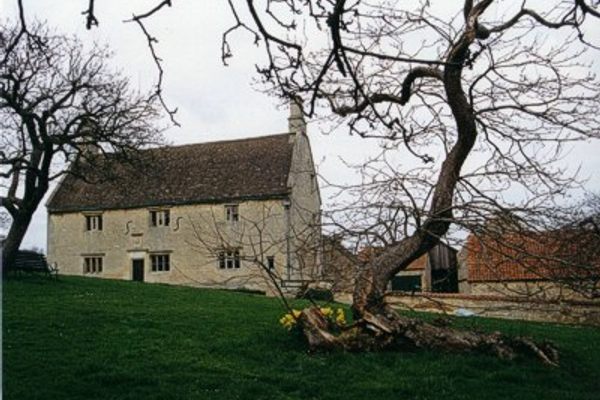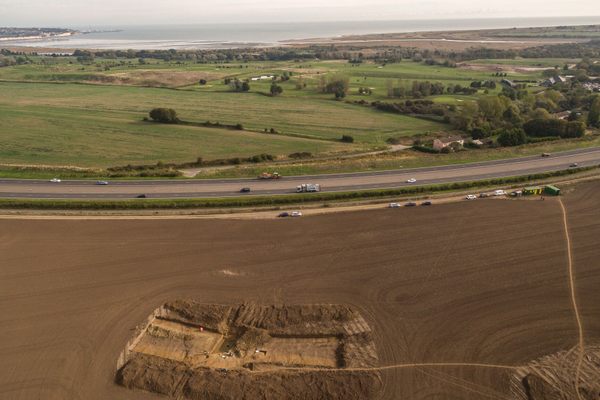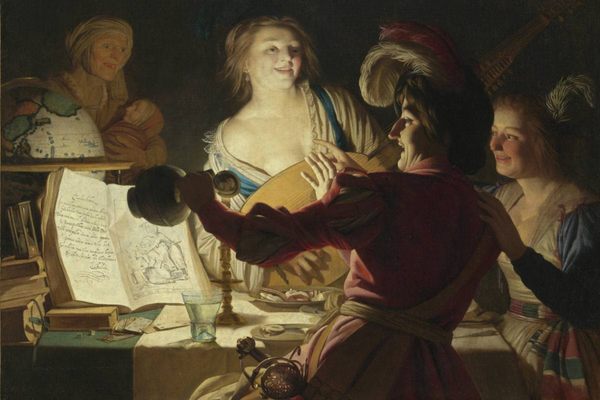Found: A Hidden Drawing in Sir Isaac Newton’s Childhood Home
The famed scientist was known for his habit of using walls as sketchpads.

Sir Isaac Newton, an English mathematician, astronomer, theologian, and physicist widely known for his many contributions to human knowledge, including the laws of motion and universal gravitation as well as the reflecting telescope, was also an avid wall scribbler as a child.
In 1752, his friend and biographer William Stukeley wrote, “The walls, & ceelings were full of drawings, which he had made with charcole. There were birds, beasts, men, ships, plants, mathematical figures, circles, & triangles.”
Researchers believed they have discovered one such drawing, a stylized sketch of a mill, engraved on a wall in one of the rooms of Woolsthorpe Manor, the 17th-century house in Lincolnshire, England, where young Isaac grew up. The drawing, which is thought to have been inspired by a nearby mill, was discovered beneath a fireplace thanks to the use of Reflectance Transformation Imaging (RTI), which, according to a press release, uses light to capture the shape and color of a surface not visible to the naked eye.
“It’s amazing to be using light, which Newton understood better than anyone before him, to discover more about his time at Woolsthorpe,” said Chris Pickup, the conservator at Nottingham Trent University who discovered the drawing, in the release. “I hope that by using this technique we’re able to find out more about Newton as man and boy and shine a light on how his extraordinary mind worked.”

Previous sketches had been found in the 1920s and 1930s by tenants moving into the home, which is now owned by the National Trust, the largest conservation organization in England. Pickup and his team are currently studying the building, which is where Newton undertook his prism experiment and allegedly observed the famous apple falling from a tree, in order to understand more about the scientist’s early investigations.
“Paper was expensive, and the walls of the house would have been repainted regularly, so using them as a sketchpad as he explored the world around him would have made sense,” said Jim Grevatte, a program manager at Woolsthorpe Manor, in the press release.
The drawing will be on show, along with the original prism used by Newton which was discovered recently in a shoe box in Trinity College, Cambridge, during the House of Light exhibition at Woolsthorpe Manor between December 8, 2017, and February 20, 2018.

























Follow us on Twitter to get the latest on the world's hidden wonders.
Like us on Facebook to get the latest on the world's hidden wonders.
Follow us on Twitter Like us on Facebook